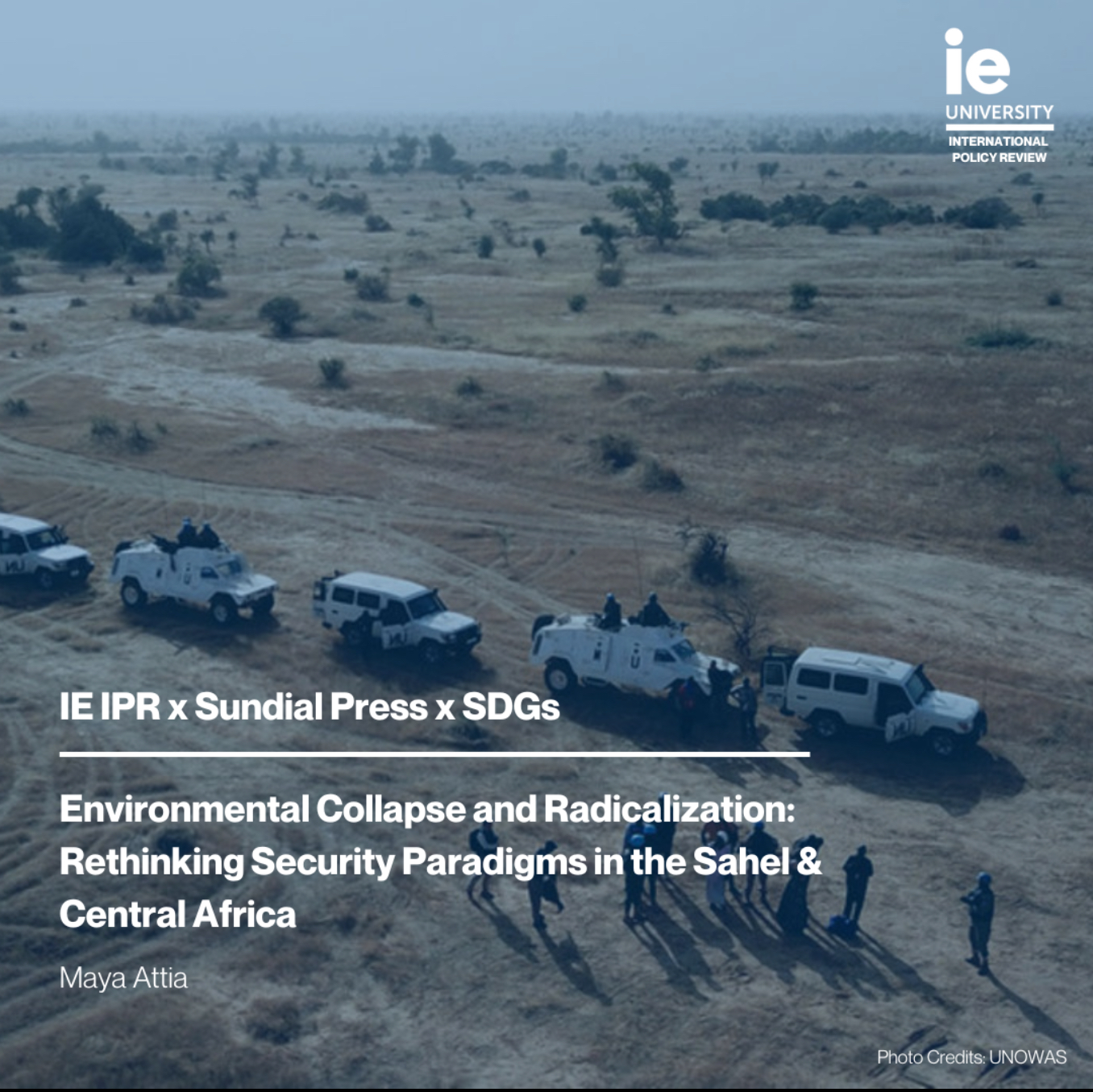
30 Jun Environmental Collapse and Radicalization: Rethinking Security Paradigms in the Sahel & in Central Africa
Maya Attia
Sciences Po Paris – Campus de Reims, France.
Bachelor of Arts.
E-mail: maya.attia@sciencespo.fr.
Abstract
This article examines the relationship between climate change and violent extremism in Central Africa. It argues that environmental degradation exacerbates socio-economic inequalities, undermines state legitimacy, and creates conditions conducive to radicalization. Through comparative case studies of the Central African Republic (CAR), the Lake Chad Basin, and the Sahel, and an integrated analysis of environmental security, radicalization theory, and political ecology, this paper proposes a “green security” framework. This approach calls for policy interventions that combine climate adaptation, inclusive governance, and digital diplomacy. Special attention is given to Sustainable Development Goal 13 (Climate Action), whose objectives are directly relevant to the security and resilience challenges faced in the region. Ultimately, the study seeks to contribute to an evolving conversation on how security policy must adapt to the realities of climate change.
READ THE FULL ARTICLE HERE
Keywords: Climate Change, Violent Extremism, Central Africa, Environmental Security, Political Ecology, Radicalization.

Sorry, the comment form is closed at this time.